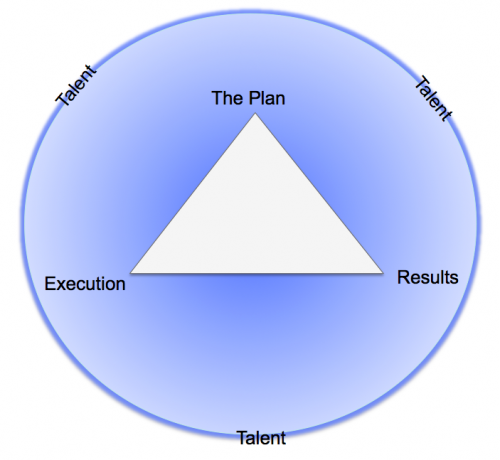My buddy Ken Granader and Author of How to Build Winning Sales Teams tackles one of the least leveraged levers in getting more out of your sales team . . . rewards and recognition.
I love the creativity he brings to this. It's great sales advice. 
---------------
Many salespeople will tell you that the only recognition that they want is more commissions. Truth be told, they care more about recognition than just a commission check. Successful salespeople like to be commended for large orders, competitive knockouts and love to be stack ranked against their peers. Great salespeople are true competitors and love to win and to be recognized for it.
The great thing about recognizing salespeople is that informal recognition can be just as powerful as formal recognition. Mentioning a big win in a team email or a team conference call goes a long way towards motivating the typical salesperson.
I always like to use simple and fun ways to reward accomplishments. Depending upon your team, rewards will vary. When I was a new manager managing a team of young twenty-somethings, I implemented a putt-for-dough program. Every time a salesperson got a signed order, they got to “putt for dough.” In our sales office, we put the ball catcher right at the door of the District Manager’s office. When you got an order, you putted into the ball catcher from about 20 feet away. If you made the putt, you got $5 cash. If you brought in multiple orders or orders for our most expensive or strategic products, you got “bonus putts.” This little game also brought in soft recognition from the District Manager who would often come out to see who brought in orders and congratulate them. You would have been amazed at how much that team loved putt-for-dough. It was a huge motivator and provided great reward and recognition at a minimal cost.
 I have also made a habit of providing sales team rewards. Many times I will set a quarterly or annual goal for the team (over and above the quota) and if the team wins, everybody wins. I have taken my teams white water rafting, on hot air balloon rides, golfing, water skiing, go-carting and bowling. Obviously, the greater the challenge, the greater the reward. Team rewards are great for getting everyone to come together for the greater good. They build camaraderie and get everyone in the boat rowing together, so to speak. Even in companies that I’ve worked where President’s Club trips were part of recognition, I still had team challenges. Team challenges raise the bar to a higher level and reinforce the idea that just making quota isn’t really good enough—we need to do better than that.
I have also made a habit of providing sales team rewards. Many times I will set a quarterly or annual goal for the team (over and above the quota) and if the team wins, everybody wins. I have taken my teams white water rafting, on hot air balloon rides, golfing, water skiing, go-carting and bowling. Obviously, the greater the challenge, the greater the reward. Team rewards are great for getting everyone to come together for the greater good. They build camaraderie and get everyone in the boat rowing together, so to speak. Even in companies that I’ve worked where President’s Club trips were part of recognition, I still had team challenges. Team challenges raise the bar to a higher level and reinforce the idea that just making quota isn’t really good enough—we need to do better than that.
Other great, inexpensive ways to provide recognition are to have a salesperson who just closed a large deal present the win at a QBR. They get to talk about how they “Made it Happen.” They are on center stage and under the spotlight and the less experienced salespeople get to learn from these “win sharings.” They think to themselves that they want to get a big win like that so that they can share it with the team—it’s another one of those silent motivators. At my current company, if we receive an order of $100K or more, we ring the “large order” gong over our PA system. That becomes a company-wide motivator and then people go to order administration to find out who closed the order and then congratulate the appropriate salesperson.
Salespeople are best motivated by “carrots.” If you want them to do more, give them more carrots. It doesn’t have to be compensation though—commissions are already there for doing their every day jobs. The carrots I’m talking about relate to getting a fast start on a new product launch, knocking out competitors or generating x number of proposals. You can focus on the goesintas or the goesoutas. If orders are flowing, stretch them for more orders. If orders are lagging, offer incentives for focusing on delivering more goesintas. The idea is to make it fun and meaningful.
Salespeople just love to win…the more chances that you give them to win something, the better your overall performance will be.



